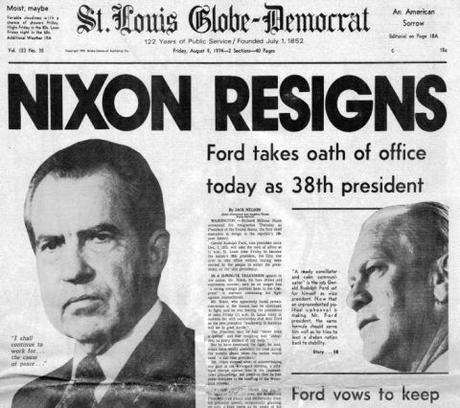 Conspiracies do happen. Lots of people think they are common. 71% of Americans think the government are hiding the truth about UFO’s, 9/11 was an inside job, and the Apollo moon landings (or at least the first one) was a hoax. But how likely are these conspiracy theories? And what logical tools can we use to explore them?
Conspiracies do happen. Lots of people think they are common. 71% of Americans think the government are hiding the truth about UFO’s, 9/11 was an inside job, and the Apollo moon landings (or at least the first one) was a hoax. But how likely are these conspiracy theories? And what logical tools can we use to explore them?
First – here’s a real conspiracy. On June 17th 1972, burglars were arrested in the Watergate complex in Washington DC. They were discovered to be part of a small group connected to President Nixon’s re-election campaign, seeking to wiretap phones and steal documents.[1] Conspiracies are about small groups of people attempting something immoral. Watergate failed because the group was exposed.

So – what about UFOs and the Apollo moon landings?
Ken Samples points to five questions we can ask of these claims to test the logical basis of the conspiracy claim.[2] These logical tools reveal the majority of conspiracy theories to be false.

1 – Does the theory hold together?
Does it have a solid foundation or is it contradictory? For example, think about the claim that aliens are visiting the planet. Given the vast distances that would have to be travelled, and the physical laws that would have to be overturned in order to achieve this, the theory starts to look contradictory. The facts required for the UFO government conspiracy don’t hold together.
2 – Does the theory comport with the facts?
Good theories don’t only fit with all the facts, they also tie them all together. The Watergate burglars were where they should not be, with wire tapping equipment, and one of them had the telephone number of Nixon’s government office. These are simply facts. But the theory that they are conspiring to steal information they should not lawfully have – ties these facts together.
A bad theory will reject some of the facts because they are inconvenient to the theory. For example, people who try to claim that the Jewish Holocaust did not happen during WW2 have to reject the data available from Jewish, Axis and Allied sources. They may mount a theory, but they will have to hide certain facts that the theory does not comport with.
3 – Does the theory avoid unwarranted assumptions?
Often when you start to investigate a bad theory, people make unwarranted claims to make the theory stand. For example, consider the claim that the Apollo moon landing was faked. The documented evidence shows that 400, 000 people were employed on Apollo and over 20,000 industrial firms and Universities were active in the enterprise. It was a massive undertaking in financial terms and man hours. It was also massive in the sheer number of people that had to be involved to make it happen.
If we are to claim that the astronauts did not reach the moon, then we have to make the assumption that all these people, or at least a significant proportion of them, were willing to keep this secret. But not just that, but they were all able to KEEP this secret in the face of jubilation around the world, and fifty years of celebrations. This starts to sound like an unwarranted assumption. After all, it would only take one person to crack … and the game would be up! Yet in fifty years, there has been no whisper of falsification by those actually involved. Just by people with a conspiracy axe to grind.
4 – How well does the theory handle counter evidence?
When counter evidence comes to light, how well does the conspiracy theory deal with this? For example, on the moon landing, how does the hoax theory cope with counter evidence like:
- the photographic evidence from American and Chinese satellites showing the Apollo equipment remaining on the landing sites.
- the bouncing of lasers off of instrumentation on the moon.
- moon rocks.
5 – Is the theory open to falsification? If so, how?
Can a theory be proven false under certain circumstances? Or is it simply impossible to falsify it? Conspiracy theories tend NOT to be open to falsification. There is always another unwarranted assumption that stops the process of falsification.
However – a good theory IS open to falsification. This is one of the reasons that a good theory has rational weight. For example, if there was no connection between the Nixon government and the Watergate burglars, the conspiracy theory could have been quickly falsified.
Conclusion
It’s fun to kick conspiracy theories around. But when we put them through these logical filters – most of them drop out as false.
So – the next question is – what happens when we expose the theory that Jesus rose from the dead – to these logical tools? Well – the theory comes out to be a sound one. I’ll talk about that next.
[1] Watergate Scandal, History, accessed 29th August, 2019, https://www.history.com/topics/1970s/watergate.
[2] Logically Questioning Strange Ideas and Controversial Theories, Reasons to Believe, accessed 29th August, 2019, https://www.reasons.org/explore/blogs/reflections/read/reflections/2017/07/11/logically-questioning-strange-ideas-and-controversial-theories.
